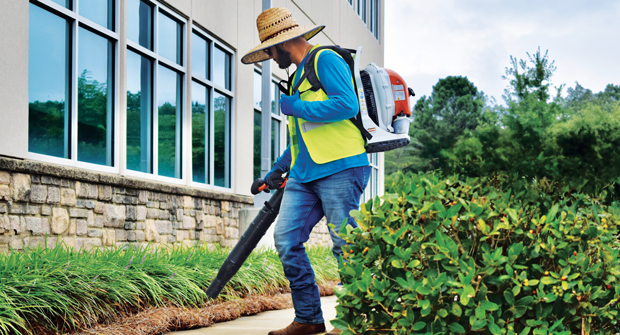No. 22
NaturaLawn of America
Frederick, Md.

With 64 branches and sales nearing $46 million, the NaturaLawn of America franchise system has a thing or two to share about growing a business. Phil Catron, president and founder, has been in the industry since the 1970s, working for large and small lawn care companies before starting NaturaLawn. That said, many of its obstacles are universal, such as regulations regarding material use, finances and more. The 27-year-old company strives to overcome these by making sound business decisions and operating more efficiently.
What is it that would you do differently then, knowing what you know now?
Friends have asked that same question a couple of times in the past, and I tongue in cheek say if I knew then what I know now, I’d probably screw things up because I’d second guess myself. When you don’t know you can’t do something, it’s amazing what you can do. But I do have a couple of suggestions, in hindsight, that I’d pass along.
OK, great. Let’s hear them.
Trademark your logo and name. It’s critical. In a company that’s going to be expanding out of the general area and across state lines, it’s even more critical that you get it filed through the federal patent and trademark office. You have to actually conduct business across state lines before doing so, and the sooner the better. We started in 1986 and incorporated in 1987. It was about 1990, several years after we began going over state lines, that I called up our attorneys and said, ‘Shouldn’t we trademark our logo?’ From day one we made it known our goal was to franchise. Our attorney said, ‘That’s probably a good idea.’ My jaw dropped. It cost us literally $1 million in legal fees over the first 10 years we were in business.
When it comes to a trademark, don’t rely on your accountant to tell you that you can use your name. Just because a name is available, it doesn’t mean you can trade under it. For example, our name is NaturaLawn of America, but we have multiple trademarks. If someone wanted to incorporate as NaturaLawn of Maryland, the state would let them because they’re only worried about collecting taxes. But the minute they go to trade under that name, they’ll get hit with our trademark letter. There’s a difference between incorporating under a name and being able to trade under it. You need to do a LexisNexis search.
The other thing is with partnerships. Have an up-front buy-sell agreement. I had a marvelous partner until he retired. We didn’t want our wives to be each others’ partners if one of us died. We had a cross-purchase agreement funded by life insurance and stock. I suggest you update it every year. Ask: ‘How has our business changed, and how does it affect this cross-purchase agreement? How would the payout be done? How would the business be valued?’ There should be a way to evaluate the business so one partner doesn’t say it’s worth a million and the other says it’s only worth $200,000. It’s kind of like doing your last will and testament. Nobody wants to do it, but you need to do it.
Do you have any other advice for small companies?
Never ever run out of cash. And don’t confuse profit with cash. You can be very profitable and go out of business because you’re out of cash. You can be not profitable and cash rich, which is going to keep you going.
Especially for new operators: Do what you do best and really focus in on that because there are a lot of opportunities to make money. Keeping your money is very hard. You might go out on a lawn and someone might come up to you and say, ‘Do you do gutters?’ You’re looking at it as another $100, but all of the sudden you find yourself doing odd jobs that don’t focus in on the primary goal of your business.
—Interview by Marisa Palmieri

